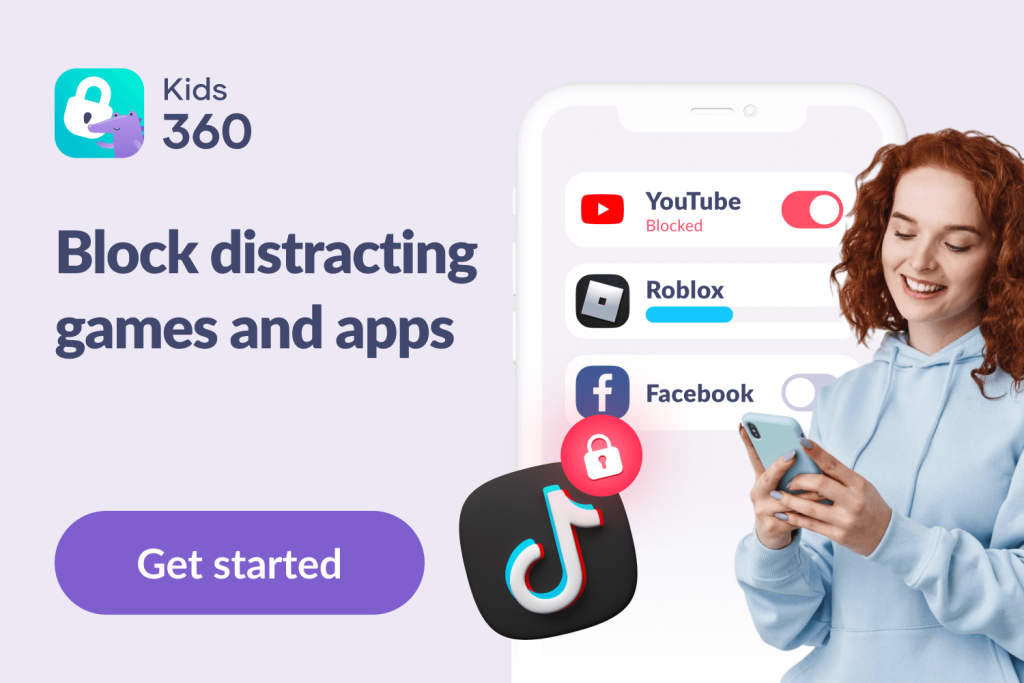Is Sendit Anonymous? What Parents Need to Know to Keep Kids Safe

Is Sendit anonymous?
As parents, we’re constantly under pressure from our kids to let them use the latest social media apps or try out new online games. Figuring out whether such apps are safe and completely anonymous can be tricky, yet doing so is vital to keep our children safe.
If your kids want to use the Sendit app, we’ve got all the information you need below.
Contents:
- Is Sendit an Anonymous App, and How Does it Work?
- Is Sendit Safe for Kids to Use? Top Questions for Parents
- Tips for Keeping Kids Safe from Anonymous Apps Like Sendit
- FAQs
Is Sendit an Anonymous App, and How Does it Work?

Ground Picture/Shutterstock.com
Sendit is a popular social media app developed by Snap Kit. It’s been designed to work exclusively with Snapchat and is available on Google Play. The app allows Snapchat users to connect to their account and Snapchat friends.
The Sendit app can be used to play Sendit games, including augmented reality games, and send anonymous questions and answers to other Sendit users. For example, users choose a game to play, take a snap, ask a question, and then invite their friends to send anonymous responses.
Why is Sendit Popular with Kids?
A key reason for the app’s growing popularity is that it also allows users to ask personal questions and receive anonymous feedback. For example, Sendit games such as Smash or Pass, Rate Me, and Roast Me are particularly loved by kids. Simply being able to ask silly questions and then read the funny anonymous messages received in response is a big draw for children, providing plenty of entertainment opportunities. Some kids also like having the ability to ask questions without feeling judged and being able to express themselves freely.
And then there’s the element of being able to play fun Sendit games—and what kids wouldn’t be interested in trying out new online augmented reality games? But do apps like Sendit pose an anonymity risk, and are there other dangers associated with the app?
We explore more below to help you ensure your children stay safe online.
Is Sendit Safe for Kids to Use? Top Questions for Parents

Prostock-studio/Shutterstock.com
Sendit is hugely popular: the app has been downloaded over nine million times to date, and this number is growing every day. The main risks of Sendit for kids include the potential for cyberbullying and harassment. Anonymous messaging can result in children sending or receiving unpleasant answers, which could seriously impact the reader’s self-esteem and confidence. Plus, the anonymous nature of the Sendit app makes it hard to track down perpetrators misusing the platform and causing problems.
And then, of course, it’s important to consider privacy and data implications. As well as the possibility of data violations, it’s important to remember that anonymous apps don’t preclude users from posting personal details if they wish, which could constitute a major risk.
How to See Who Sent a Sendit?
Although the Sendit app is meant to be anonymous, there are several ways users may be able to discover who sent a message—a quick online search reveals how to go about doing so. For example, if the username is attached to the message, you can simply head to their profile to see if the person’s contact details are listed. Where there is no username provided, you could, instead, try searching for them on Snapchat using their email or phone number, if these are provided.
Plus, users have the option of paying a monthly fee, which then allows them to see a hint of who sent them a Sendit. The full name won’t be revealed, but a clue will be given to their identity.
So, as you can see, an anonymous app may not be quite so anonymous after all! While this may be useful for tracking down the perpetrators of cyberbullying, it also means there could be a chance that your child could be identified, even via a seemingly anonymous message.
What Type of Content is Shared on the Sendit App?

Credit: airdroid.com
Images are shared when asking a question—this could be a picture of the user themself, or their pet, a meal they’ve made, a picture they’ve drawn, the view from their window, or anything at all.
The ability to send any type of question, silly or serious, is one of the main reasons the app is such a hit with kids.
Popular games that children enjoy playing on the app include Truth or Dare, Never Have I Ever, and True or False.
Are There Age Restrictions for Using Sendit?
Unfortunately, not all platforms use or enforce age restrictions, and the Sendit app is one of these. The app doesn’t have a minimum age, which could give the impression that it’s universally safe. However, most parenting forums recommend that the Sendit app isn’t appropriate for users under the age of seventeen.
It’s also important to be aware that no parental control tools are incorporated within the app itself. So it’s totally possible for a child of any age to sign up to the app without this being flagged up, and there are no in-built content restrictions based on age that can be activated within the platform.
anonymous apps are dangerous for children, so use the Kids360 parental control software to protect your child. With it, you will know in which applications and how much time your child spends, and you can also block or restrict access to dangerous content.
Tips for Keeping Kids Safe from Anonymous Apps Like Sendit

iVazoUSky/Shutterstock.com
Companion apps like Sendit may seem safe due to their affiliation with a major platform, but they could constitute a significant risk to kids. Since the app is popular with teenagers and even younger children, it’s important to be aware of the problems such anonymous apps create. Not least of these is the possibility of peer pressure and cyberbullying, which can seriously affect kids’ self-esteem and well-being, and even lead them to behave in ways that are out of character, possibly even dangerous.
Use the tips below to help your child navigate the world of Sendit as safely as possible.
Educate Your Kids on the Risks of Anonymous Apps
When it comes to protecting your kids from anonymous app risk, the most important thing you can do is speak to them openly and honestly about the potential dangers. Ensure your kids know that, even though the Sendit app is anonymous, it’s absolutely crucial that they never share any personal information in either the questions or the answers they post. If they use the app to play augmented reality games, ensure your kids understand that it’s equally important not to share personal details during play.
You can further reduce the risk by making sure your children know how important it is to tell you or another trusted adult if they experience incidents of bullying or harassment. Impress your kids on the importance of their own actions and that they should never answer questions in a way that could hurt the feelings of others.
Talking about Sendit and other anonymous apps can make for a great opportunity to have a chat about online safety in general, including steering clear of scammers, and the type of content that is and isn’t ok to share.
Encourage Your Kids to Seek Help if They Feel Uncomfortable

MAD.vertise/Shuttertock
When using Sendit and other apps, it’s crucial to make sure your kids understand the importance of seeking help—from you or another trusted adult—if anything happens online that makes them feel uncomfortable or uneasy.
Let your children know that, whatever it is, they won’t be judged, and the situation can be sorted out. Point your kids in the direction of other sources of help and advice, such as the school counselor, so they understand there’s plenty of support available if needed.
Teach Your Kids to Think Before Posting on Anonymous Apps
Anonymous apps can seem like a fun way to spend time connecting with friends, allowing users to ask and receive answers to any question they can imagine, from how highly other users would rate their outfit to what superhero their cat most resembles! However, the other side of anonymous apps like Sendit is that your child may receive an upsetting response to a personal question. For example, if they ask other users to rate their appearance, this could be a recipe for disaster. And young kids, especially, may not be entirely up to speed on what constitutes tact.
Make sure your kids know how important it is to take a moment to think before sending responses to questions posted on the Sendit app and to never send an answer that could hurt the user’s feelings. Explain to them that if they’re asked to—say—rate a picture that a user has created, it’s best to say nothing rather than anything negative; unless the user has asked for constructive feedback. And even in this case, the emphasis is on ‘constructive.’ In general, teaching your kids the importance of the old adage, ‘if you can’t say anything nice, don’t say anything at all’ is probably the best approach. Sometimes, these things are cliches for a reason.
Be Supportive and Create an Open Environment for Discussion

Ground Picture/Shutterstock.com
When it comes to all social media platforms, creating an open and supportive environment within your household is crucial. Kids should be encouraged to share their experiences with you, especially if they’re unsure about something that’s happened while online or if something has upset them or made them feel uncomfortable.
Fostering an environment in which it’s a regular thing to talk with your kids about how they’re using Sendit and other apps and platforms, whether anonymous or not, is one of the most effective ways to keep your kids safe and ensure they enjoy a healthy online experience.
Stay current on how your children are using the app and how often to monitor whether this needs addressing—apps can have a tendency to become addictive.
Set Clear Rules and Expectations for Your Child’s Use of Sendit
If you’ve decided to allow your child to use the Sendit app, then it’s vital to set clear rules and expectations around this. These could take the form of, for example, the maximum time they are permitted to spend on the app every day, the nature of the questions they’re allowed to ask, or the type of games they’re able to play.
You could also communicate clear expectations regarding standards of behavior and that any form of bullying, harassment, or the like will result in being banned from the platform. Explaining the potential unseen effects of such behavior is a good idea, to help kids understand the possible impact of their actions—just because a response is anonymous, it can still have a tangible effect on someone in the real world.
It’s also important to let your kids know that they are also entitled to be treated with respect, both online and in the real world.
Consider Using Parental Control Software to Monitor Your Child’s App Usage
As well as taking the steps suggested in this guide to help keep your child safe when using Sendit, you could also consider using parental control software for added peace of mind. Given that there are no parental control limits incorporated in the Sendit app itself, deploying a solution that’ll allow you to monitor your child’s usage of the platform and set limits around this is an effective way of keeping your eye on what they’re doing online.
Kids360 is one of the best parental control apps on the market right now—you can easily find it to download on the app stores. This tool allows parents to limit the time their children spend on certain apps and platforms to help keep things balanced and protect against online distractions from negatively affecting their child’s school work or real-world social life.
Plus, parents can use it to monitor usage, and if you decide you don’t want your child to use the Sendit app at all. No problem; you can use Kids360 to block it entirely. Problem solved!
So, is Sendit Anonymous, Really?

fizkes/Shutterstock.com
Well, yes. And no. The problem is that while the app may be anonymous, it ceases to be so if users include personal or identifying information in the questions or responses they post. Plus, a quick Google search reveals ways to get around the anonymity barriers and potentially discover exactly who sent an answer.
Anonymity aside, the Sendit app can also cause problems regarding cyberbullying and harassment and pose a serious risk to a child’s self-esteem. And there’s always the risk of inappropriate content being sent or viewed.
In summary, Sendit is one of the third-party apps that must be approached with caution. While it’s generally considered to be unsuitable for kids under the age of seventeen, many children are using the app to send questions and receive answers or to enjoy playing the augmented reality games available.
If you’d like your kids to have access to Sendit but are keen to ensure their experience online is as safe as possible, then use the tips in the guide above to help—downloading Kids360 parental control software is also an important way to safeguard their usage, and ensure it doesn’t risk taking over their day.
FAQs

byswat/Shutterstock.com
Can people find out who sends Sendits?
The Sendit app is designed to be anonymous, meaning that users cannot see the identity of those sending or responding to questions. However, full anonymity isn’t always guaranteed. The app offers a paid feature that gives vague hints—like the sender’s general location or phone type—but never shows their full identity. So while it may feel anonymous, some users try to “guess” who sent what.
Is Sendit anonymous?
Sendit is designed to be an anonymous messaging app, allowing users to receive questions and comments without seeing who sent them. However, the anonymity isn’t absolute: the app offers a paid subscription that provides only vague hints about the sender—such as general location or phone type—without revealing their identity.
According to user reports and sources like Internet Matters, these paid clues are often misleading and not useful for identifying the sender, meaning messages on Sendit remain effectively anonymous.
Are Snapchat Sendits anonymous?
Yes, when using Sendit with Snapchat, the original sender remains hidden—this is the app’s core feature. But because of vague clues offered through paid upgrades, some teens feel exposed or worry their identity could be guessed. Parents should know that even anonymous apps can cause real emotional reactions.
Is Sendit confidential?
The app promotes confidential, anonymous feedback—but as with any app allowing unfiltered input, things can go wrong. Hurtful messages or even bullying may happen under the cover of anonymity. That’s why it’s essential to have ongoing conversations with kids about what they experience online and how to report or block harmful content.
Who can see my Sendit?
Only the recipient of the message can see your Sendit directly. If they choose to respond, they may share it publicly (like in a Snapchat story), but your original message remains anonymous. Still, anything posted online can be screenshotted or misused—so it’s worth being mindful of what’s shared.
What should I do if my child is being cyberbullied on Sendit?
Support is key—ensure that they feel loved and know you’re on their side and ready to help. Encourage them to take a break from Sendit—think of ways to help them relax or do something that makes them feel good, like having a friend over or heading out for a family walk. Depending on the circumstances, it may be necessary to report the bullying to the platform, and, if you know the bully’s identity, speaking to their parents about what’s happening could also be an effective way forward.
Is it possible to report inappropriate content on Sendit?
Yes, it is both possible and encouraged. If your child has seen or received inappropriate content, then open the message and click on the thumbs-down icon in the top right corner of the screen. Now you can select Spam, Bullying, or Creepy, as necessary, and then choose to either inform the Sendit team, block the user, or delete the message.
Are there any alternative apps to Sendit that are safer for kids?
While there are plenty of alternative Sendit apps, all such similar apps may pose the same risks to kids, particularly if anonymous messages are involved. It’s best to think very carefully before allowing your child to access social media platforms or apps like Snapchat to safeguard their well-being and develop healthy online habits.
The picture on the front page: Postmodern Studio/Shatterstock.com
Проверьте электронный ящик




















